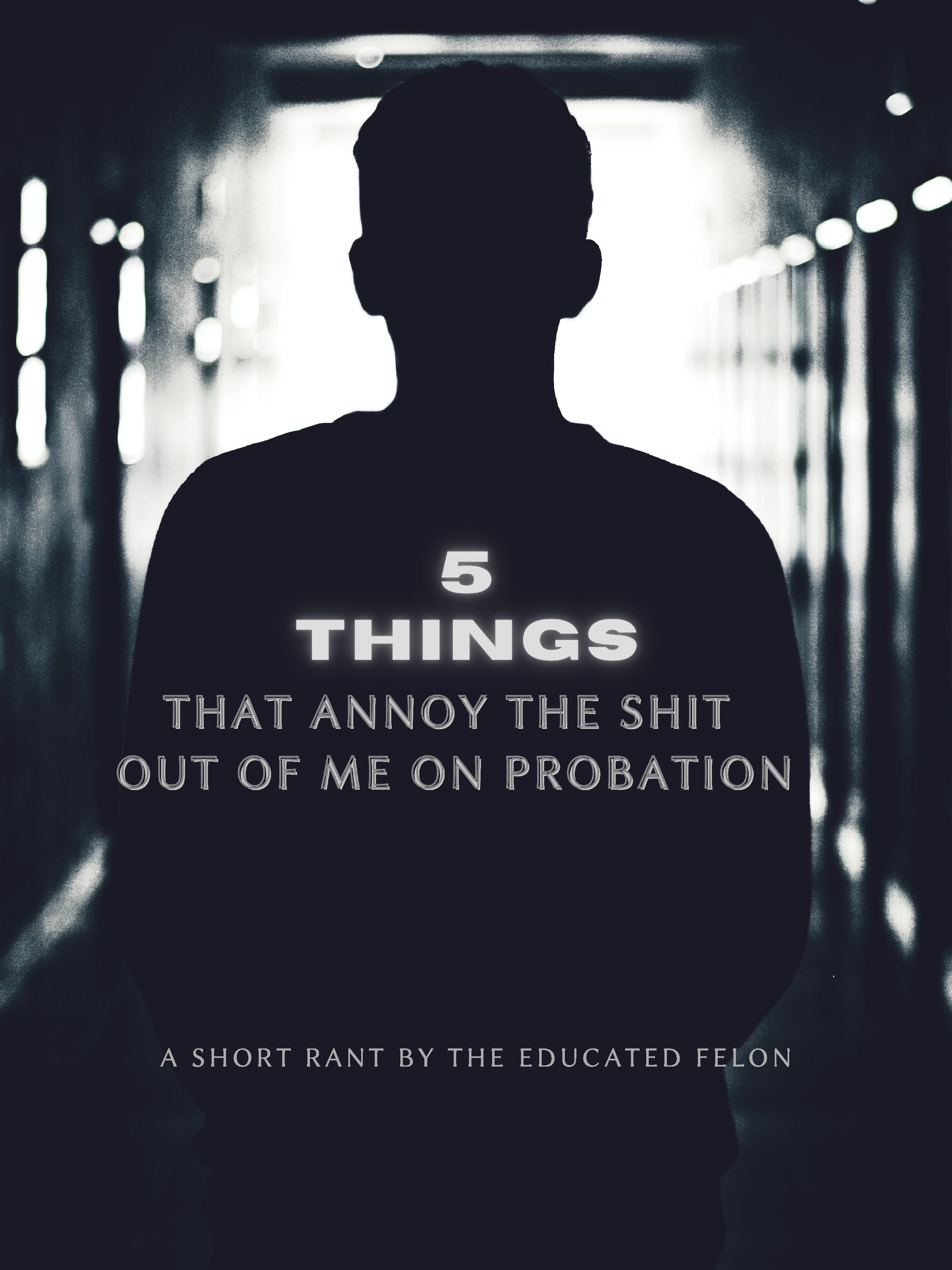What to Expect During A Probation Office Check-in: Your Guide to Walking Out and Staying Free
Introduction
So, you’ve got a date with your probation officer. Feeling a bit nervous? Don’t worry! Whether it’s your first rodeo or you’re a seasoned pro (sadly), probation check-ins can be nerve-wracking. But fret not my legally troubled friend!
I’m about to lift the curtain on what goes down during these appointments. From surprise tests to paperwork marathons, I’ve got you covered. Buckle up as we navigate the dos, don’ts, and “oh hell nah, they didn’t!”s of probation check-ins.
The Main Event: What Really Happens Behind Those Doors?
The Waiting Game: More Than Just Thumbing Through Old Magazines
- Expect to wait, sometimes for 15 minutes, sometimes for an hour or more
- Probation offices are often busy, and schedules can be unpredictable
- Bring a book, fully charged phone, or tablet for entertainment (silenced, and a full bladder
- Use this time to:
- Review any documents you’ve brought
- Mentally prepare for your meeting
- Practice deep breathing exercises to stay calm
- Observe office rules (e.g., no phone calls, quiet conversation)
- Be polite to office staff and other probationers – your behavior is noticed
The Q&A Session: 20 Questions, Probation Style
Your probation officer (PO) will ask about various aspects of your life:
- Employment status:
- Current job details or job search efforts
- Any changes in employment since the last check-in
- Income and ability to meet financial obligations
- Living situation:
- Current address and any changes
- Who you’re living with (especially important if there are restrictions)
- Any issues with housing stability
- Contact with law enforcement:
- Any new arrests or citations, no matter how minor
- Traffic stops or interactions with police
- Be honest – they often already know and are testing your truthfulness
- Compliance with probation terms:
- Attendance at required programs (e.g., anger management, substance abuse treatment)
- Community service hours completed
- Progress on paying fines or restitution
- Personal life:
- Relationships and social circle
- How you’re spending your free time
- Any major life changes or stressors
Be prepared to answer these questions honestly and in detail. Your Probation Officer is assessing your progress and identifying any areas where you might need support or intervention.
The Paper Trail: Documentation is Key
Bring proof of everything you claim:
- Employment verification:
- Recent pay stubs
- Letter from employer
- Job application records if unemployed
- Community service hours:
- Signed timesheets from approved organizations
- Contact information for supervisors
- Program attendance:
- AA/NA meeting attendance sheets
- Certificates of completion for courses
- Progress reports from therapists or counselors
- Financial records:
- Receipts for paid fines or restitution
- Bank statements showing regular payments
- Budget plan if you’re struggling to meet obligations
- Residence verification:
- Utility bills in your name
- Lease agreement
- Letter from landlord or roommates
Organize these documents in a folder for easy access. Being well-prepared demonstrates responsibility and can make your check-in go more smoothly.
The Surprise Element: Drug Tests and Home Visits
Be ready for unannounced elements of your check-in:
- Random drug tests:
- These can happen at any check-in, regardless of your offense
- Be prepared to provide a urine sample on the spot
- Inform your PO of any prescription medications you’re taking
- If you’re concerned about passing, some offices allow you to admit to use before the test for more lenient consequences
- Home visit announcements:
- Your PO may inform you of an upcoming home visit
- These visits verify your living situation and ensure you’re following probation terms at home
- They may be scheduled or surprise visits
- Keep your living space clean and free of any prohibited items
- Additional requirements:
- Your PO might add new conditions to your probation based on your progress
- This could include increased check-ins, new programs, or restrictions
- Listen carefully and ask for clarification if needed
Remember, these elements are designed to ensure you’re staying on track. Approach them as opportunities to demonstrate your commitment to completing probation, rather than as punishments or inconveniences.
Probation Office Checklist: Be Prepared or Be Square
✅ Valid ID ✅ Proof of employment/job search ✅ Community service documentation ✅ Program attendance records ✅ Receipts for fines/restitution payments ✅ List of medications (if applicable) ✅ Journal of activities since last check-in ✅ Questions or concerns for your PO
By the Numbers: Probation Stats That’ll Raise Your Eyebrows
- Over 3.5 million adults were on probation in the US as of 2020
- 56% of probationers successfully complete their probation sentence
- The average probation sentence term is 22 months
- 19% of probationers are required to undergo substance abuse treatment
- Probation violations account for 1 in 4 state prison admissions
Real-Life Scenarios: When Probation Gets Real
- The Forgetful Frank: Frank, a 28-year-old on probation for a DUI, arrived at his monthly check-in feeling confident. However, when his probation officer asked for proof of employment, Frank’s heart sank. He had left his pay stubs on his kitchen counter.
- What happened: Frank’s PO gave him a stern warning about the importance of documentation.
- Consequences: He was required to return the next day with the papers and had to take time off work.
- Lesson learned: Frank now keeps a dedicated folder in his car with copies of all important documents.
- Pro tip: Set a reminder on your phone the night before each check-in to gather all necessary paperwork.
- Honest Harriet: Harriet, in her 40s and on probation for shoplifting, faced a dilemma. She had missed an AA meeting due to a family emergency but knew her PO would ask about attendance.
- What happened: Harriet decided to be upfront. She explained the situation to her PO and presented a plan to make up the missed meeting.
- Consequences: Her PO appreciated the honesty and proactive approach. No additional sanctions were imposed.
- Follow-up: Harriet attended an extra meeting that week and brought proof to her next check-in.
- Lesson learned: Honesty and problem-solving go a long way in building trust with your PO.
- Tardy Tom: Tom, a 22-year-old on probation for drug possession, had a habit of cutting things close. On the day of his check-in, he underestimated traffic and arrived 20 minutes late.
- What happened: Tom’s PO was visibly frustrated. This wasn’t the first time Tom had been late.
- Consequences: The PO imposed additional restrictions:
- Weekly check-ins instead of monthly for the next three months
- A mandatory time management course
- An earlier curfew for 30 days
- Lesson learned: Tom started leaving an hour early for all probation-related appointments.
- Long-term impact: The increased supervision helped Tom stay on track, and he completed probation six months later.
- Drug Test Debacle Debbie: Debbie, on probation for a non-drug-related offense, was caught off guard by a random drug test during her routine check-in. She had been to a party over the weekend where she smoked marijuana, thinking she wouldn’t be tested.
- What happened: Debbie considered lying but decided to admit to the use before taking the test.
- Consequences:
- Her honesty was noted, but she still faced sanctions
- Required to attend drug counseling sessions
- Increased frequency of drug tests for the next three months
- Lesson learned: Assume you can be tested at any time, regardless of your original offense.
- [For those concerned about passing future drug tests, consider CleanStart Detox Kit for peace of mind.]
- Proactive Paul: Paul, on probation for a white-collar crime, took his rehabilitation seriously. Before his check-in, he prepared a detailed report of his activities, including job search efforts, volunteer work, and a budget plan.
- What happened: Paul’s PO was impressed by his initiative and thoroughness.
- Positive outcomes:
- PO recommended reducing the frequency of check-ins
- Offered to connect Paul with a job placement program
- Lesson learned: Going above and beyond can lead to more favorable treatment and demonstrate true rehabilitation.
These real-life scenarios illustrate the importance of:
- Being prepared for every check-in
- Honesty, even when you’ve made a mistake
- Punctuality and respect for the process
- Taking initiative in your rehabilitation
- Understanding that every interaction with your PO can impact your probation experience
Remember, your actions and attitude during probation can significantly influence your journey through the criminal justice system. Stay proactive, honest, and committed to change.
WHAT TO AVOID: The Probation No-No List
- Don’t consume alcohol or drugs before your appointment
- Avoid hanging out with known criminals
- Don’t lie or try to deceive your PO
- Don’t skip required programs or treatments
- Avoid traveling without permission
Are you worried about passing a drug test? Try UltraPure Detox Tea for a natural cleanse.
The Home Stretch: Concluding Your Probation Journey
Remember, probation is a second chance, not a life sentence. Stay positive, follow the rules, and keep your eye on the prize – freedom! If you’re ever in doubt or facing a violation, don’t go it alone.
Need legal help? Contact LegalEagle Defenders for expert probation violation defense.]
Your probation officer isn’t your enemy. They’re there to help you succeed. Be honest, be prepared, and most importantly, be committed to change. With the right attitude and this insider knowledge, you’ll be walking out those probation office doors for the last time before you know it!







One Comment